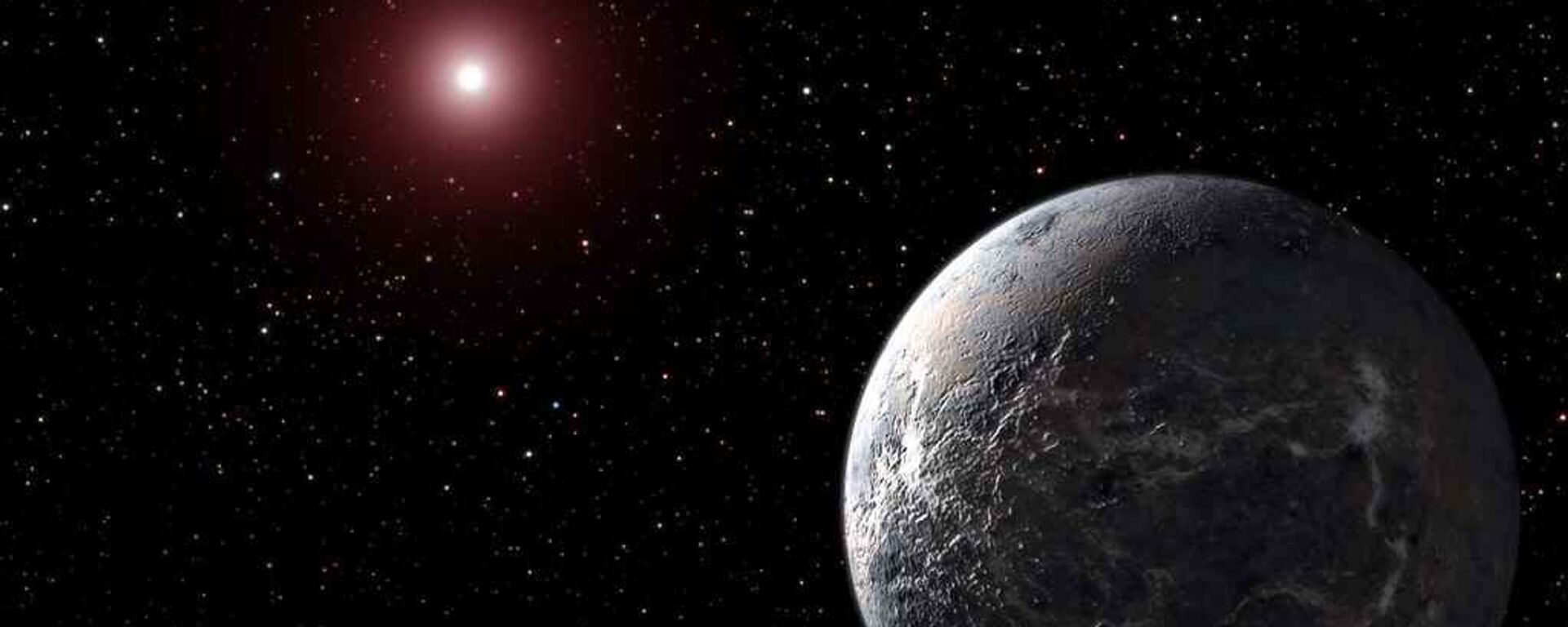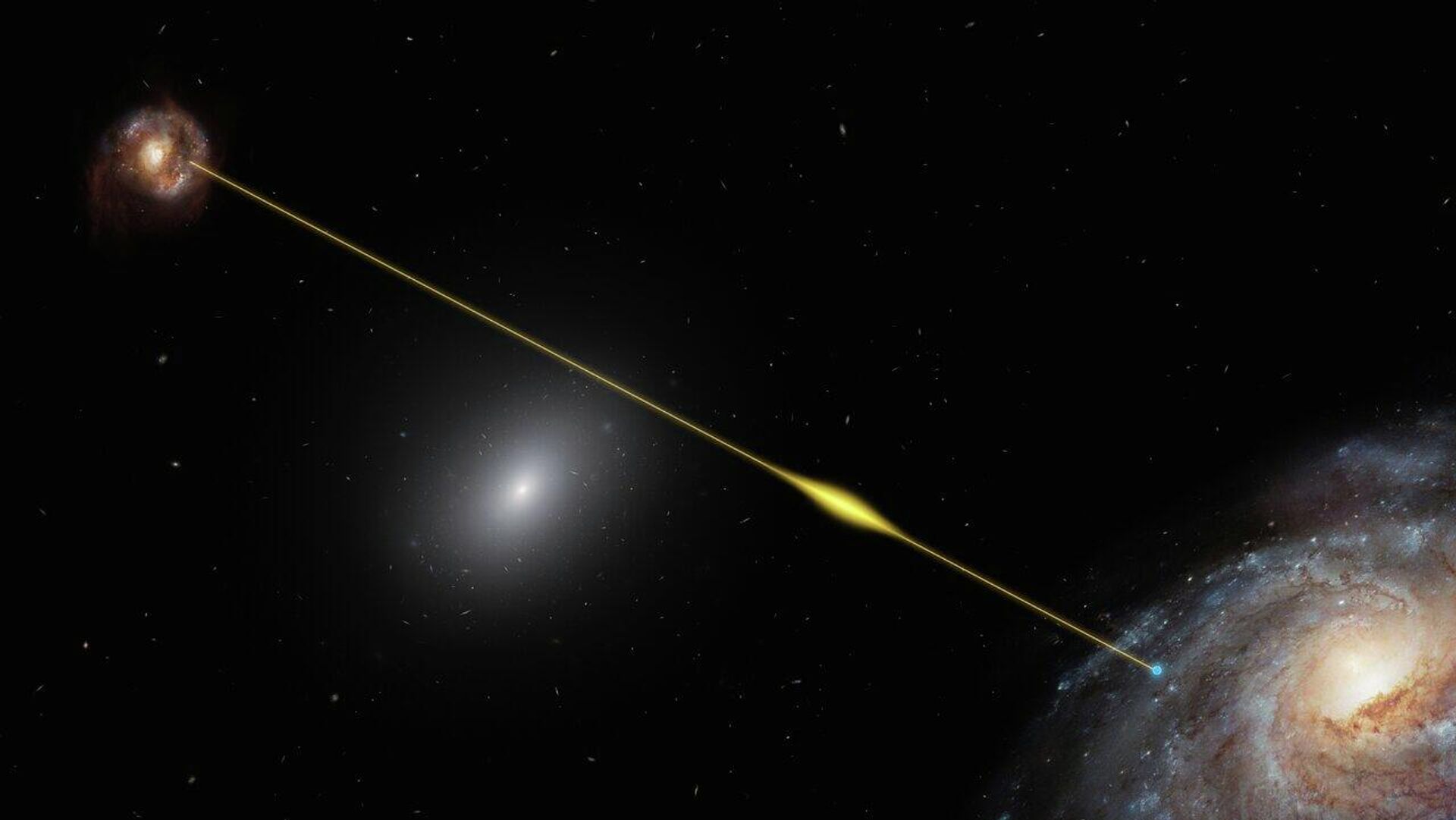https://sputnikglobe.com/20231027/astronomers-detect-ultra-short-fast-radio-bursts-lasting-just-one-millionth-of-second-1114516299.html
Astronomers Detect Ultra-Short Fast Radio Bursts Lasting Just One Millionth of Second
Astronomers Detect Ultra-Short Fast Radio Bursts Lasting Just One Millionth of Second
Sputnik International
The discovery was made possible by reevaluating public data regarding Fast Radio Bursts collected by the Green Bank Telescope as part of the Breakthrough Listen project.
2023-10-27T03:36+0000
2023-10-27T03:36+0000
2023-10-27T03:35+0000
beyond politics
science & tech
space
space exploration
fast radio burst (frb)
https://cdn1.img.sputnikglobe.com/img/07e6/02/1a/1093381246_0:0:1281:721_1920x0_80_0_0_26a522d00402f8f13c05ce7b478b2d9a.jpg
An international team of astronomers has identified fast radio bursts (FRBs) lasting only one millionth of a second, a fraction of the duration previously observed. The team's astonishing revelation may now shed new light on these enigmatic cosmic phenomena."By coincidence, I found out that there was a public dataset that we could use for this," stated lead author Mark Snelders, an astronomer at the University of Amsterdam.The newly detected ultra-short bursts were traced back to the source FRB 20121102A, situated an astounding three billion-light years away from Earth. Previous observations had missed these microsecond pulses because data collection methods were not sensitive enough. Officials have likened the discovery to searching for specific rocks in a pile of sand with a strainer, with the holes in the strainer being far too large to capture the sought-after objects.The research team utilized data originally collected by the Green Bank Telescope, part of the Breakthrough Listen project, which initially aimed to search for radio signals from intelligent extraterrestrial life.The unique characteristic can be leveraged to map out the otherwise difficult-to-observe regions between stars and galaxies, offering a more comprehensive understanding of how galaxies gather gas from the cosmos.The discovery of these microsecond FRBs could potentially provide an even more precise tool for interstellar mapping, akin to upgrading one's prescription glasses for a clearer view of the universe.With this groundbreaking finding, astronomers are eager to uncover more sources of the ultra-short bursts, which could further illuminate the cosmic mysteries that continue to captivate the scientific community.The findings of the study were published in the journal Nature Astronomy.
https://sputnikglobe.com/20231017/russias-spektr-uv-space-telescope-to-be-fully-equipped-with-domestic-gear-scientist-1114263075.html
Sputnik International
feedback@sputniknews.com
+74956456601
MIA „Rossiya Segodnya“
2023
News
en_EN
Sputnik International
feedback@sputniknews.com
+74956456601
MIA „Rossiya Segodnya“
Sputnik International
feedback@sputniknews.com
+74956456601
MIA „Rossiya Segodnya“
what is fast radio burst, green bank telescope, breakthrough listen project, source frb 20121102a, what is happening in space, space studies
what is fast radio burst, green bank telescope, breakthrough listen project, source frb 20121102a, what is happening in space, space studies
Astronomers Detect Ultra-Short Fast Radio Bursts Lasting Just One Millionth of Second
Fast radio bursts have been a subject of intense astronomical interest since their discovery in 2007. Typically, these bursts are thought to last about a thousandth of a second and are known to release energy equivalent to what our sun produces in an entire day.
An international team of astronomers has identified fast radio bursts (FRBs) lasting only one millionth of a second, a fraction of the duration previously observed. The team's astonishing revelation may now shed new light on these enigmatic cosmic phenomena.
"By coincidence, I found out that there was a public dataset that we could use for this," stated lead author Mark Snelders, an astronomer at the University of Amsterdam.
The newly detected ultra-short bursts were traced back to the source FRB 20121102A, situated an astounding three billion-light years away from Earth. Previous observations had missed these microsecond pulses because data collection methods were not sensitive enough.
Officials have likened the discovery to searching for specific rocks in a pile of sand with a strainer, with the holes in the strainer being far too large to capture the sought-after objects.
The research team utilized data originally collected by the Green Bank Telescope, part of the Breakthrough Listen project, which initially aimed to search for radio signals from intelligent extraterrestrial life.
As FRBs traverse the vastness of space, they exhibit a distinctive curve in their signals. Certain frequencies arrive at our detectors earlier than others, as some signals are hindered by interactions with gas and dust along their cosmic journey toward Earth.
The unique characteristic can be leveraged to map out the otherwise difficult-to-observe regions between stars and galaxies, offering a more comprehensive understanding of how galaxies gather gas from the cosmos.

17 October 2023, 15:27 GMT
The discovery of these microsecond FRBs could potentially provide an even more precise tool for interstellar mapping, akin to upgrading one's prescription glasses for a clearer view of the universe.
With this groundbreaking finding, astronomers are eager to uncover more sources of the ultra-short bursts, which could further illuminate the cosmic mysteries that continue to captivate the scientific community.
The findings of the study were published in the journal
Nature Astronomy.



